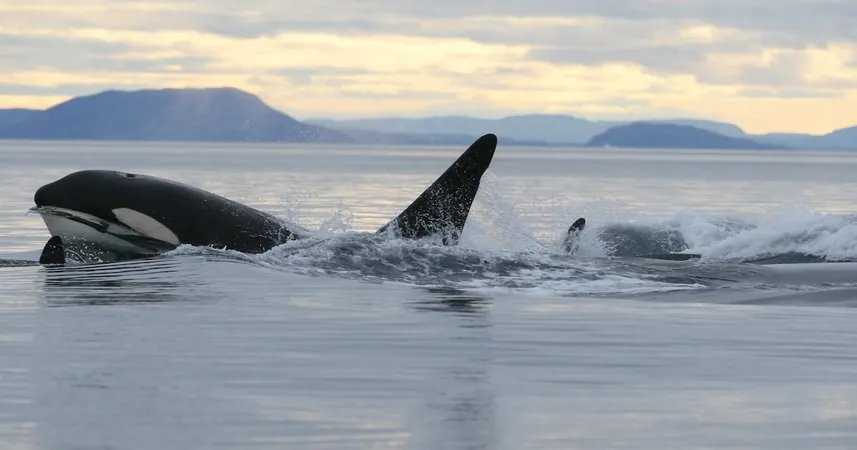
Orcas Invade the Arctic: A Dire Warning for Whales and Humanity
2024-12-26
Author: Michael
Orcas and Climate Change
As climate change wreaks havoc on global temperatures, orcas, also known as killer whales, are extending their reach into the Arctic waters. This alarming shift is primarily attributed to the rapid melting of sea ice, raising significant concerns for other whale species and the Indigenous communities that rely on these marine mammals for their livelihoods.
Research Findings
Recent research led by evolutionary geneticist Colin Garroway from the University of Manitoba has uncovered two genetically distinct populations of orcas now inhabiting the eastern Canadian Arctic. The implications of this arrival could be catastrophic for local prey species, including vulnerable belugas, narwhals, and bowhead whales, which Garroway humorously dubbed 'slow, chubby, and delicious.'
Impact on Ecosystems
Garroway emphasized the complexities brought on by these apex predators. 'The introduction of killer whales into these ecosystems could potentially upend existing food webs,' he warned, noting that their presence might not only threaten the whale populations but also put additional pressure on Arctic communities' food sources. Killer whales have historically been rare visitors to the Arctic due to the hazards of navigating through icy waters. However, as ice cover thins, more sightings are being reported, indicating that these formidable predators are now thriving in a formerly inaccessible habitat. The study indicates that these orcas have begun preying on belugas and narwhals, followed by bowhead whales and seals, thus altering the balance of marine life.
Adaptations of Orcas
Additionally, Garroway and his team have documented distinct feeding behaviors and vocalizations among the two newly identified populations, highlighting their different adaptations to the Arctic environment. Surprisingly, many of the hundreds involved do not recognize each other as potential mates, which complicates conservation efforts for this at-risk species.
Indigenous Concerns
The shift in orca populations has garnered attention from Indigenous groups, who have expressed growing concerns over the impact on their traditional hunting practices. The food sources that Indigenous communities depend on are now threatened, signaling a crisis that combines ecological and cultural dimensions.
The Arctic Warming
Moreover, the Arctic is the fastest-warming region on Earth. With Arctic waters warming and becoming ice-free, there are predictions that more sub-Arctic species, including orcas, will make their way northward. Garroway's team is keenly aware that the change in community structure could have severe effects, suggesting an impending transformation in how marine species interact.
Ongoing Research
Currently, the research is in its infancy, and critical questions remain unanswered, such as the seasonal movements of these Arctic orcas during the winter months when ice covers the waters. Several tracking devices have been deployed, but data has been sparse, leaving many mysteries about their migratory patterns unsolved. 'We’re still in the dark about much of their ecology,' Garroway remarked, indicating the urgent need for further study.
Conclusion
As we face these dramatic shifts in the marine ecosystem, the arrival of orcas into the Arctic serves as a stark reminder of climate change’s far-reaching impacts—highlighting not just the potential devastation to wildlife, but also to the human communities that depend on these whales for their cultural identity and survival. The clock is ticking, and we must act now to safeguard these vital ecosystems before it's too late!

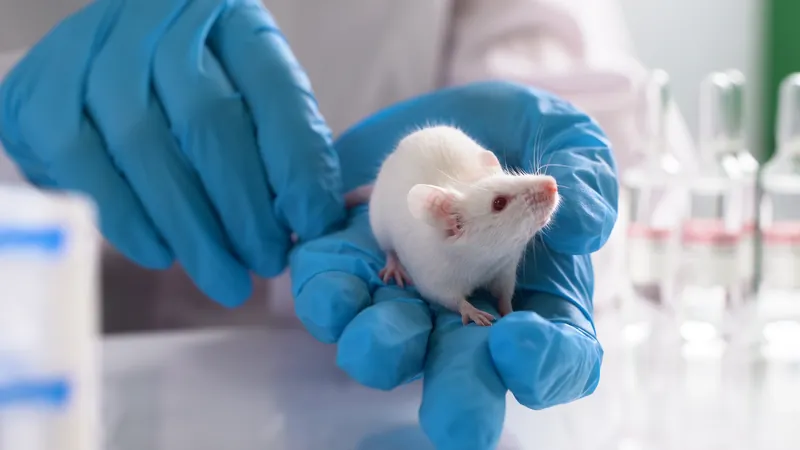

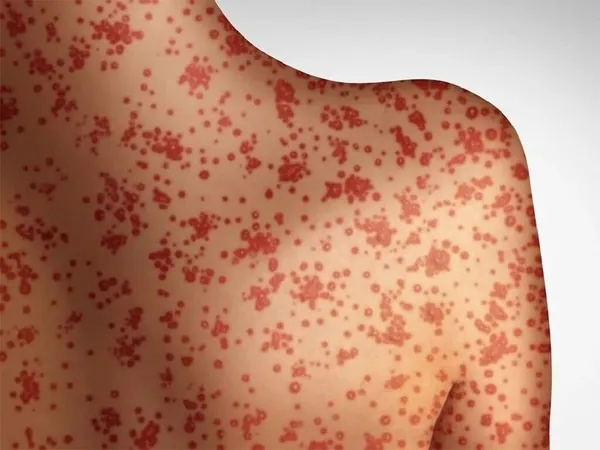
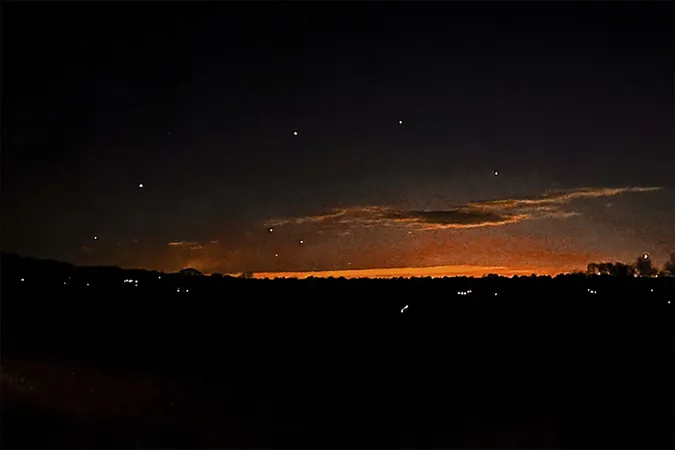


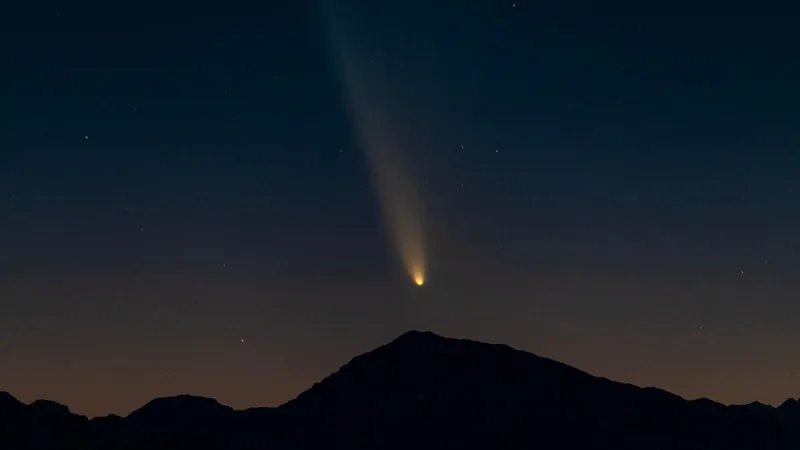
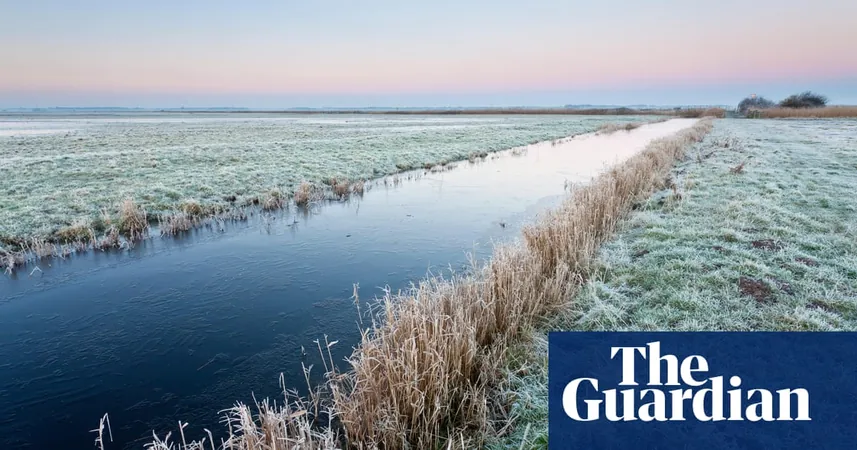
 Brasil (PT)
Brasil (PT)
 Canada (EN)
Canada (EN)
 Chile (ES)
Chile (ES)
 España (ES)
España (ES)
 France (FR)
France (FR)
 Hong Kong (EN)
Hong Kong (EN)
 Italia (IT)
Italia (IT)
 日本 (JA)
日本 (JA)
 Magyarország (HU)
Magyarország (HU)
 Norge (NO)
Norge (NO)
 Polska (PL)
Polska (PL)
 Schweiz (DE)
Schweiz (DE)
 Singapore (EN)
Singapore (EN)
 Sverige (SV)
Sverige (SV)
 Suomi (FI)
Suomi (FI)
 Türkiye (TR)
Türkiye (TR)